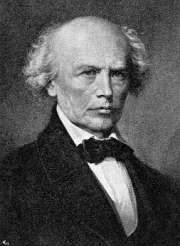|
Biografie Ludwig Uhland
Johann Ludwig „Louis“ Uhland (n. 26 aprilie 1787 în Tübingen; d. 13 noiembrie 1862, Tübingen) a fost un poet, filolog, jurist și om politic german. Tradus la noi în colecția „Cele mai frumoase poezii”. Poeziile sale prezintă unele caracteristici ale romantismului (predilecția pentru temele medievale), dar nu poate fi totuși clasificată ca atare.
***
Johann Ludwig „Louis“ Uhland (* 26. April 1787 in Tübingen; † 13. November 1862 ebendort) war ein deutscher Dichter, Literaturwissenschaftler, Jurist und Politiker.
Johann Ludwig Uhland wurde am 26. April 1787 in Tübingen, im Herzogtum Württemberg, geboren. Sein Stammbaum lässt sich bis ins 16. Jahrhundert zurückverfolgen. Er entstammt einer renommierten Gelehrtenfamilie. In Tübingen lebte die Familie Uhland, seitdem der Großvater Ludwig Joseph als Professor der Theologie an die Universität berufen worden war. Ludwigs Vater war Universitätssekretär. Seine Mutter galt als fürsorgliche und gutmütige Frau. Ludwig verbrachte seine Kinderjahre in Tübingen und wohnte mit seiner Familie in einem alten Bürgerhaus an der Neckarhalde. Er hatte zwei Geschwister, von denen sein Bruder Friedrich im Alter von zehn Jahren an Scharlach starb. Die Schwester Luise wurde erst nach Friedrichs Tod geboren.
***
Johann Ludwig Uhland (26 April 1787 – 13 November 1862), was a German poet, philologist and literary historian.
He was born in Tübingen, then Duchy of Württemberg, and studied jurisprudence at the university there, but also took an interest in medieval literature, especially old German and French poetry. Having graduated as a doctor of laws in 1810, he went to Paris for eight months to continue his studies of poetry; and from 1812 to 1814 he worked as a lawyer in Stuttgart, in the bureau of the minister of justice.
He had begun his career as a poet in 1807 and 1808 by contributing ballads and lyrics to Seckendorff's Musenalmanach; and in 1812 and 1813 he wrote poems for Kerner's Poetischer Almanach and Deutscher Dichterwald. In 1815 he collected his poems in a volume entitled Vaterländische Gedichte, which almost immediately secured a wide circle of readers. To almost every new edition he added some fresh poems. His two dramatic works Ernst, Herzog von Schwaben (1818) and Ludwig der Baier (1819) are unimportant in comparison with his Gedichte.
As a lyric poet, Uhland must be classed with the writers of the romantic school. Like them, he found in the Middle Ages the subjects which appealed most strongly to his imagination. Yet his style has a precision, suppleness and grace which distinguish his most characteristic writings from those of the romantics. Uhland wrote poems in defence of freedom, and in the states assembly of Württemberg he played a distinguished part as one of the most vigorous and consistent of the liberal members.
As a Germanic and Romance philologist, Uhland must be counted among the founders of that science. Besides the treatise Ueber das altfranzösische Epos (1812) and an essay Zur Geschichte der Freischiessen (1828), there are to be especially mentioned Walther von der Vogelweide, ein altdeutscher Dichter (1822); Der Mythus von Thôr (1836), the result of the most painstaking original investigation; and the masterly collection Alte hoch- und niederdeutsche Volkslieder (1844–45; 3d ed. 1892). His poetical works were repeatedly published as Gedichte und Dramen, while his scientific work is embodied in Schriften zur Geschichte der Dichtung und Sage, edited by Holland, Keller, and Pfeiffer (1865–72).
One of his best known poems is "Ich hatt' einen Kameraden", which is an integral part of military funerals.
He died on 13 November 1862 in Tübingen.
A town located south of Austin, Texas is named in his honor.
|




